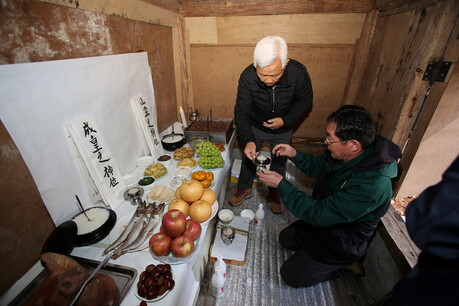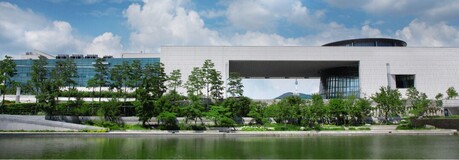A South Korean port city's ambitious plan to create a landmark tourist attraction has backfired spectacularly, with residents and critics denouncing the newly constructed "Big Tree" observation tower as a costly failure. The 34.4 billion won ($24.8 million) project in Changwon, southeastern South Korea, was intended to draw both domestic and international visitors but has instead generated widespread public backlash over its disappointing execution.
The 46.5-meter tall Big Tree tower was directly inspired by Singapore's famous Supertrees at Gardens by the Bay, designed to serve as the centerpiece of Daesang Park, a massive public-private partnership development worth approximately 1 trillion won ($720 million). The structure offers 360-degree panoramic views of Masan Port, Dotseom Island, and Muhaksan mountain, but its actual appearance has fallen far short of public expectations.
Recent local media reports and public commentary have heavily criticized the tower's squat proportions, sparse artificial foliage, and incongruous decorative animal statues, leaving many of the city's one million residents feeling underwhelmed. Local media inspections described artificial leaves arranged so sparsely they appeared unfinished, and interior plant sculptures that were obviously fake. While some small details, such as a few realistic-looking faux plants, briefly drew curiosity, most decorative elements were identified as looking "too artificial."
Changwon, an industrial and shipping hub located near the southeastern tip of the Korean Peninsula, became a special city in 2022 under South Korean law, granting it additional autonomy over development projects. City officials had promoted the Big Tree as a signature tourist attraction that could help address South Korea's long-standing problem of tourism being heavily concentrated in Seoul. According to the Korea Culture and Tourism Institute, 78 percent of foreign visitors in 2024 spent time in the capital, compared to just 16.5 percent in Busan, 11.2 percent in Gyeonggi Province, and 10.9 percent on Jeju Island.
The tower was constructed under a public-private partnership model, which Korean municipalities widely use to prevent the loss of undeveloped urban parkland to private developers under the country's "urban park sunset law" that took effect in 2020. Under Changwon's agreement, the private developer committed to building most of the park facilities, including the Big Tree, and transferring ownership to the city, while retaining approximately 12.7 percent of the site for a 1,779-unit apartment complex and other revenue-generating properties.
City Council Chair Son Tae-hwa was photographed reviewing construction progress on the Big Tree at Daesang Park on July 21 as part of the city's public-private park development project. However, the Daesang Park project faces additional challenges beyond the controversial tower. The development also includes the "Mom's Free Zone," an indoor family-oriented community center, but that facility remains only a structural shell despite apartments being scheduled for occupancy starting in October.
In response to the overwhelming negative feedback, city officials have made several significant decisions. They have confirmed that the Big Tree's upper structure will undergo a complete redesign, though they estimate this process will take at least one year. The new design will be selected through a nationwide competition combined with citizen consultations. Even if work proceeds without delays, the city projects that construction could only begin in the second half of 2026.
Furthermore, Changwon has decided not to charge an entry fee when the tower begins official operations on October 1, likely in an attempt to appease public criticism. City officials have also extended the developer's deadline for completing all park facilities to February 2026 to address the numerous deficiencies that have been identified. They acknowledge that the Mom's Free Zone community center will not open this year despite the scheduled apartment occupancies beginning in October.





























